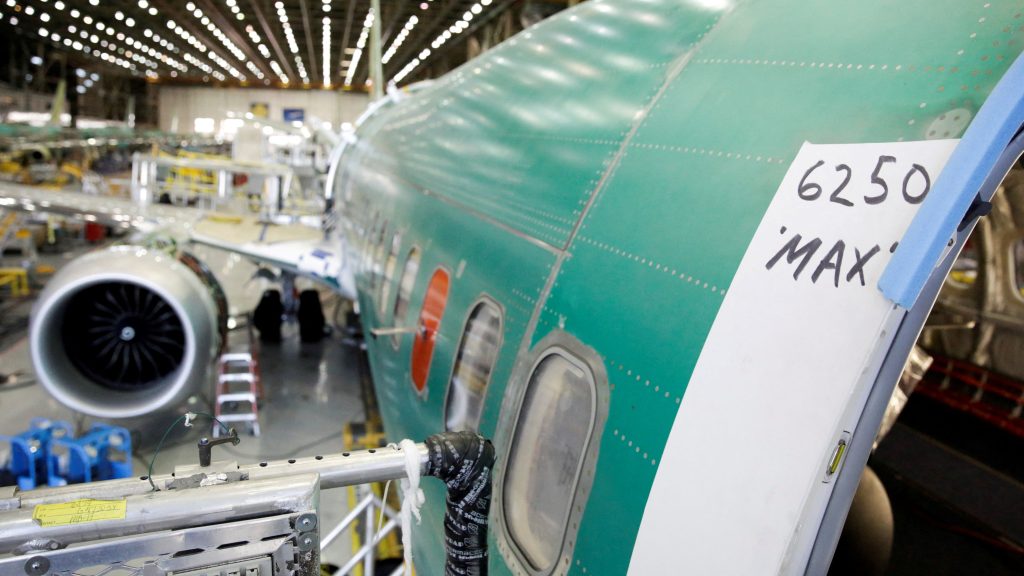Boeing To Brief European Regulators On New Production Plans After 737 MAX Panel Blowout

Boeing is planning a briefing for high-level European regulatory officials about changes to the way it makes planes, a senior company executive said, after a January mid-air panel blowout sparked a safety crisis.
Boeing has been under pressure over factory controls since Jan. 5, when a door plug tore off an Alaska Airlines 737 MAX 9 jet, in an incident blamed on missing bolts.
Elizabeth Lund, Boeing’s senior vice president quality, said on Tuesday the planemaker has a briefing with the top level of the European Union Aviation Safety Agency (EASA) coming up, with the U.S. Federal Aviation Administration (FAA) participating.
The company will do the same with other regulators.
“We will ensure they are fully aware of all the steps we are taking as we go through this,” Lund told reporters during a visit to the company’s 737 factory in Renton, Washington, a Seattle suburb.
EASA’s acting head said in March the agency would suspend its indirect approval of Boeing’s jet production if warranted, but added he felt reassured that the planemaker was tackling its latest safety crisis.
Under a transatlantic pact, the FAA and EASA regulate the factories of their respective planemakers – Boeing and Airbus – and recognise each other’s safety approvals. That relationship has been tested in the aftermath of two fatal MAX crashes in 2018 and 2019 respectively.
In February, the FAA told Boeing to develop a plan to address “systemic quality-control issues.”
Boeing said it has increased investment in training, simplified work instructions and increased supplier oversight, after the Alaska Airlines MAX 9 jet made it to the end of the factory line with rivets that needed correcting.
Boeing has also introduced certain production milestones its planes will need to hit in order to advance to the next build position. The planemaker will consider mechanics’ concerns if they believe the jet should be held back, said Jennifer Boland Masterson, a senior production director in the 737 program.
Lund said the Alaska Airlines door plug was opened without paperwork to fix the rivets, and the missing bolts were not replaced. The team that came in and closed the plug was not responsible for reinstalling the bolts, she said.
The accident, which led to an emergency landing, is under investigation by the National Transportation Safety Board.
The NTSB said early on Thursday it was sanctioning Boeing for disclosing non-public details of the ongoing investigation in the media briefing where Lund’s comments were made and it was referring the planemaker’s conduct to the Justice Department.
During the briefing, Lund said Boeing had “confidence that no other airplane was delivered like this based on the complete fleet check that we did,” in reference to the Alaska Airlines jet.
Boeing is “willing and prepared” to obtain AS9100 certification, an internationally recognized aerospace standard for quality that the planemaker requires for its suppliers, she said. Boeing is already compliant with the standard and has been audited to the level as if it was certified, Lund added.
(Reporting by Allison Lampert in Seattle; Editing by Jamie Freed)




